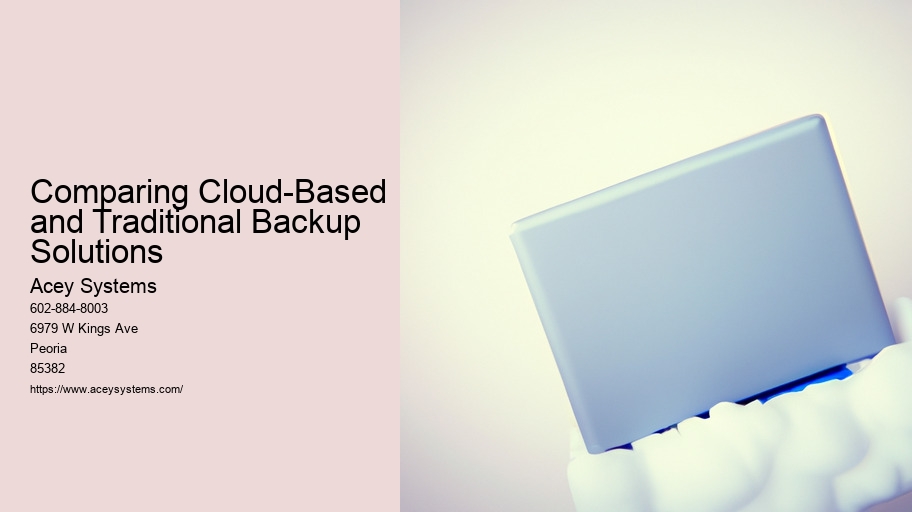In today's data-driven world, ensuring the security and accessibility of valuable information is paramount. computer services . When considering backup solutions, some may question the effectiveness of cloud-based systems compared to traditional methods. However, it is imperative to approach this topic with an analytical mindset and objective evaluation.
This article aims to provide an informative and comprehensive comparison of cloud-based and traditional backup solutions, highlighting their respective advantages and disadvantages. By examining key factors that should be considered, readers can make an informed decision to best serve their data storage needs.
Advantages of Cloud-Based Backup Solutions
While traditional backup solutions have their merits, there are several distinct advantages to utilizing cloud-based backup solutions.
One of the primary advantages is the increased level of accessibility and convenience. With cloud-based backup solutions, data can be accessed from anywhere with an internet connection, making it easier for organizations to retrieve and restore their data in the event of a disaster.
This accessibility also allows for seamless collaboration among team members, as they can access and work on the same files simultaneously.
Additionally, cloud-based backup solutions offer scalability, allowing organizations to easily increase their storage capacity as their data needs grow. This eliminates the need for costly hardware upgrades and provides a more cost-effective solution in the long run.
Disadvantages of Traditional Backup Solutions
Despite their long-standing use in data protection, traditional backup solutions often suffer from frequent manual intervention and limited automation capabilities. This can lead to several disadvantages for organizations relying on these solutions. Here are some drawbacks of traditional backup solutions:
Time-consuming: Traditional backups require manual intervention, which can be time-consuming and labor-intensive. IT staff must manually initiate and manage the backup process, taking valuable time away from other important tasks.
Higher risk of human error: With manual processes involved, there is a higher risk of human error during backup and recovery operations. This can result in data loss or corruption if not properly handled.
Limited scalability: Traditional backup solutions may have limitations when it comes to scaling up to accommodate growing data volumes. This can lead to inefficiencies and increased costs as organizations need to invest in additional hardware or software to meet their backup needs.
Considering these disadvantages, organizations may find that cloud-based backup solutions offer a more efficient and scalable alternative.
Factors to Consider When Choosing a Backup Solution
There are several key factors to consider when choosing a backup solution for your organization.
First and foremost, you need to assess the specific needs and requirements of your organization. This includes evaluating the amount of data you need to backup, the frequency of backups, and the recovery time objectives.
Additionally, it is important to consider the level of security offered by the backup solution. Look for features such as encryption, data isolation, and multi-factor authentication to ensure the protection of your data.
Another factor to consider is the scalability of the backup solution. As your organization grows, you may need to increase your backup storage capacity.
Lastly, it is crucial to evaluate the reliability and availability of the backup solution to ensure that your data is always accessible when you need it.
